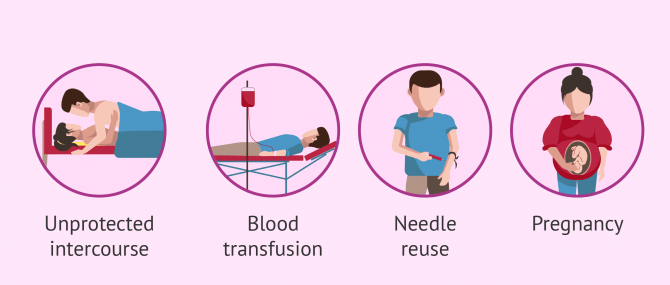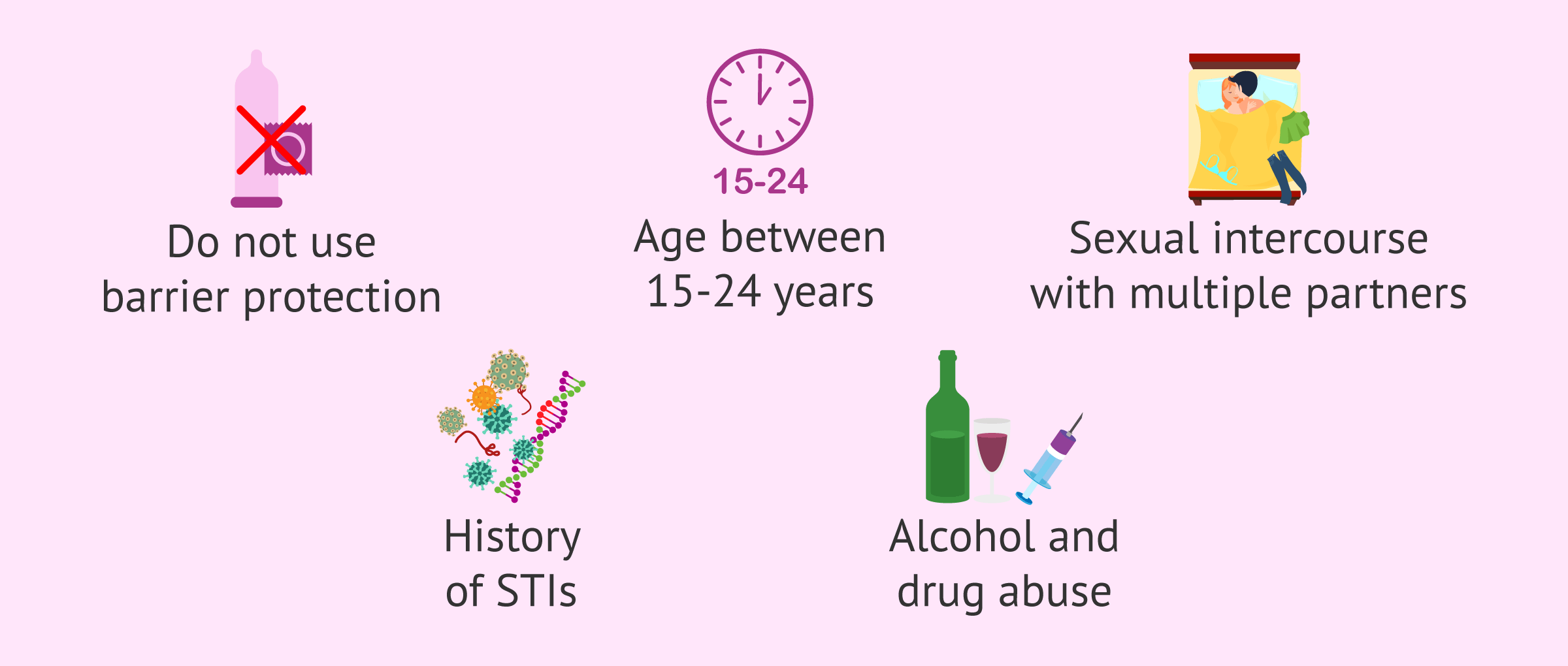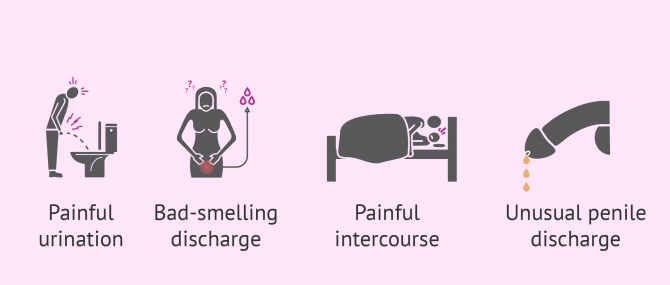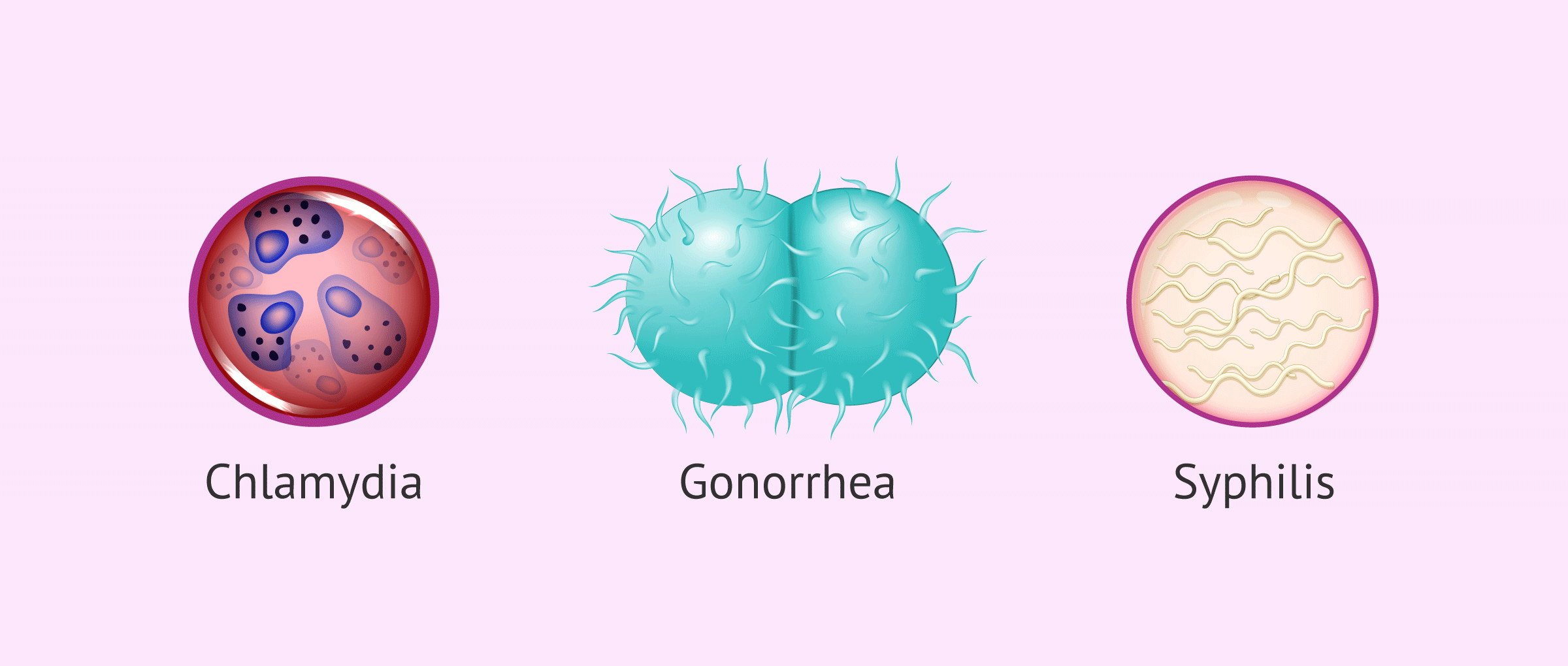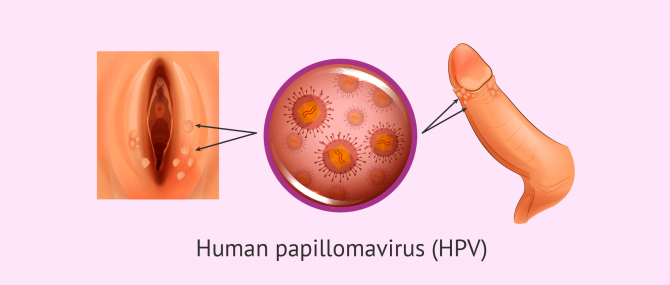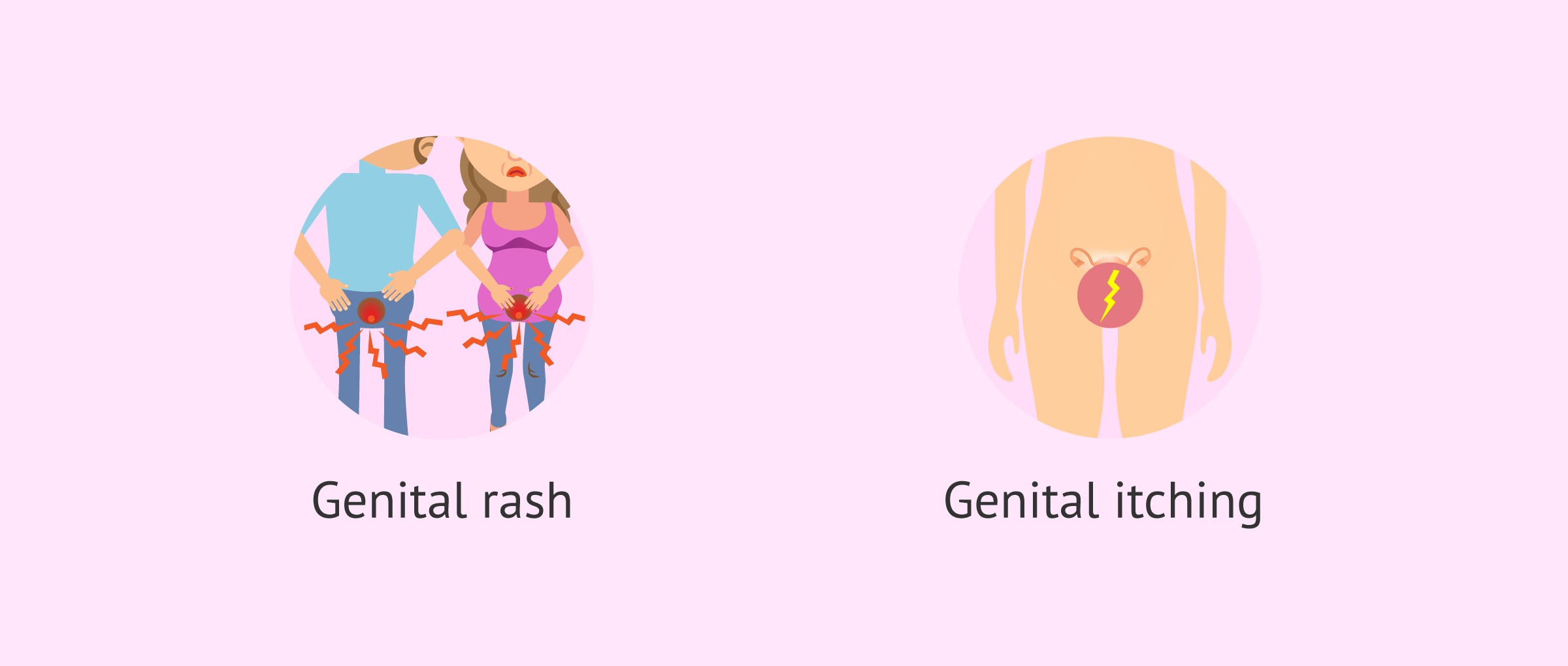Sexually Transmitted Diseases (STDs) or Sexually Transmitted Infections (STIs) are conditions that are passed from one person to another through sexual contact, including during vaginal, anal, and/or oral sex.
Symptoms of STDs are varied and, in most of the cases, considerably uncomfortable. Both males and females can be infected with a STI, although they typically have more severe effects on women than in men.
The best weapon to fight against STDs is prevention, either by using condoms, or through vaccinations, or any other preventive measure. In spite of this, the good news is that today we have treatment options for most STDs. In other words, there is a cure for almost every type of STD, as one shall see in the following sections.
Provided below is an index with the 8 points we are going to expand on in this article.
- 1.
- 1.1.
- 2.
- 3.
- 3.1.
- 3.2.
- 3.3.
- 3.4.
- 3.5.
- 3.6.
- 3.7.
- 3.8.
- 3.9.
- 4.
- 5.
- 5.1.
- 5.2.
- 5.3.
- 5.4.
- 5.5.
- 6.
- 7.
- 8.
What are the causes of STDs?
Sexually Transmitted Infections are transmitted from one person to another through contact with infected body fluids, including blood, semen, vaginal discharge, etc., hence that the main route of infection is through unprotected sexual contact.
However, there exist other ways STIs can be transmitted through, such as needle reuse, blood transfusion, touching someone that is infected, and even from mother to baby while pregnant or during labor.
The following are the main causative agents of STDs:
- Bacteria: gonorrhea, syphilis, chlamydia.
- Viruses: human papilloma virus (HPV), hepatitis, genital herpes, HIV.
- Parasites: scabies, trichomoniasis.
Each of these agents cause a sexually transmitted disease that can affect fertility. In the following article you have more information in detail: Can STDs Affect Getting Pregnant?
Risk factors
Broadly speaking, everyone with an active sex life who does not use a barrier contraceptive method like a condom is likely to have an STD.
However, there exist several risk factors that can increase the risk of acquiring a STI:
- Being between 15 and 24 years old
- Having unprotected intercourse with multiple partners
- History of STDs
- Being a victim of rape or sexual assault
- Alcohol and drug abuse, especially through needle reuse
If you find yourself in one of these situations, or suspect that you may have a STD, we recommend that you visit your doctor as soon as possible. Tests to diagnose these infections are quite easy and involve a simple bloodwork.
Symptoms of STDs
Firstly, one should know that STDs are not always accompanied by signs and symptoms. For this reason, they can go unnoticed for long time periods, until some kind of complication arises.
Oftentimes, symptoms show up few years after the contagion. In other cases, conversely, they start within a couple of days. In the latter case, the diagnosis can be rendered quickly.
Generally, the most frequent signs and symptoms of Sexually Transmitted Diseases are:
- Painful urination
- Strong-smelling or colored vaginal discharge
- Painful sexual intercourse
- Vaginal bleeding not caused by monthly menses
- Pain in the lower abdomen
- Unusual penile discharge
- Presence of erosions, warts or ulcers in the genitalia or the mouth
- Swollen, painful lymph nodes
- Fever
- Skin rashes
As can be seen, sexually transmitted infections can manifest themselves with a variety of symptoms.
What types of STDs are there?
There exist more than 20 types of sexually transmitted diseases. What follows is a list with the most common ones, along with potential treatment options to cure them.
Chlamydia
Chlamydia is one of the most common STDs. It is caused by the bacteria Chlamydia trachomatis.
In most of the cases, chlamydia does not cause any symptom in the person affected, although it can have a very negative impact on health if untreated. For instance, it can lead to Pelvic Inflammatory Disease (PID) in females.
Chlamydia can be treated with antibiotics, like Azithromycin or Doxycycline. Moreover, couples should refrain from sexual intercourse until confirmation that the disease is totally cured, since it is extremely contagious.
Gonorrhea
Gonorrhea, also known as blennorrhagia, is a STD caused by the bacteria Neisseria Gonorrhoeae. The main transmission route is vaginal, anal, or oral sex.
As in the case of chlamydia, gonorrhea does not have symptoms in most cases, but it can cause PID if not treated, which can cause infertility and complications during pregnancy.
The treatment for gonorrhea is very simply, and involves the administration of antibiotics, such as Ceftriaxone (Rocephin) or Azithromycin.
Syphilis
Syphilis is a bacterial infection that can turn into a severe disease if treatment comes too late. It is caused by a bacteria called Treponema Pallidum, and can affect both males and females.
The main symptom of syphilis is the appearance of ulcers in the genitalia, called chancre, which are highly contagious. In the most severe cases, syphilis can lead to brain damage, paralysis, or blindness.
Antibiotics used to cure syphilis are Penicillin G (Benzylpenicillin), and erythromycin.
HPV
Human Papillomavirus (HPV) is the most common type of STD nowadays.
There exist about 40 types of HPV that affect the genitalia of both males and females, and all of them are passed through sexual contact.
HPV causes a series of skin rashes, namely genital warts, which are painless buy extremely contagious. In the most serious cases of HPV, it can lead to certain types of cancer.
There is no cure for HPV. The good news is that there are other options that can help prevent it from turning into cancer, like vaccines or periodic pap smear testing. On the other hand, warts can be removed with cream or liquid nitrogen.
See also: What Is the Human Papillomavirus (HPV)?
Hepatitis B
Hepatitis affects the liver, and can be caused by different kinds of viruses, hence the existence of different types, like hepatitis A, hepatitis B, and hepatitis C. Particularly, the hepatitis B virus is typically transmitted sexually.
Hepatitis can lead to long-term liver problems if treated inadequately, including cirrhosis (late stage of scarring of the liver), cancer, liver failure, etc.
The hepatitis B virus has no cure. However, there exists a vaccine to prevent hepatitis B.
Genital herpes
Genital herpes is a common infection that is caused by the Herpes Simplex Virus (HSV), hence the existence of two types:
- Herpes Simplex Virus 1 (HSV1) or human herpesvirus 1
- Herpes Simplex Virus 2 (HSV2) or human herpesvirus 2
Both types can cause a genital herpes, although the most common type is HSV2.
The typical symptom of genital herpes are sores, vesicles, or ulcers found on the vulva, vagina, cervix, anus, penis, scrotum, buttocks, and/or thighs.
Genital herpes is usually passed from person to person by kissing or through skin contact, and obviously through oral to genital sex. There is no cure for genital herpes, but some drugs can reduce the severity of the symptoms and prevent transmission to other people.
HIV
Human Immunodeficiency Virus (HIV) is the causal agent of Acquired Immunodeficiency Syndrome (AIDS).
In particular, HIV affects the individual's immune system by damaging it, which reduces the body's ability to fight against the organisms that cause the disease, increasing the transmission probability.
HIV can stay in the affected person's body for years without symptoms. However, there is no definitive cure for the moment, and the risk of transmission through sexual contact is high.
Today, HIV infection can be treated following an antiretroviral therapy (ART), which can lower the viral load to undetectable levels in HIV-infected patients. In short, HIV medications improve the quality of life of people living with HIV and AIDS.
Recommended reading: Can You Have a Healthy Pregnancy If You Are HIV Positive?
Scabies
Scabies, also called the seven-year itch, is a contagious skin infestation that is caused by parasites, namely the human itch mite.
It is transmitted through skin contact, normally during sexual intercourse, hence that it is considered a STD.
Scabies causes severe itching, rash, sores, thick crusts on the skin (hence the name crusted scabies)... Even though scabies is not considered severe, contagious is very easy, and the symptoms are tremendously unpleasant.
Medications commonly prescribed for scabies include Permethrin cream (Elimite), or tablets containing Ivermectin (Stromectol).
Trichomoniasis
Trichomoniasis, commonly referred to as trich for short, is one of the most common curable STDs. It is transmitted through sex, and caused by a tiny parasite called Trichomonas vaginalis (TV).
People affected by trich do not have symptoms, although it can cause vaginitis or itching/swelling in and around the vagina.
The treatment of trichomoniasis is a simple one, and involves the intake of antibiotics, namely metronidazole (Flagyl) or tinidazole (Tindamax).
Prevention of STDs
The most effective tool in preventing STDs is sex education, especially aimed to young people. According to the 2016 Sexually Transmitted Diseases Surveillance published by the CDC (Centers for Disease Control and Prevention):
Incidence and prevalence estimates suggest that young people aged 15–24 years acquire half of all new STDs and that one in four sexually active adolescent females has an STD, such as chlamydia or human papillomavirus (HPV).
Birth control methods work very well at preventing an unplanned pregnancy. However, the condom is the only barrier method that prevents the transmission of a STI.
Although about 95% adolescents worldwide have access to birth control methods that help prevent transmission of STDs, only 5% of young people use them.
For this reason, and with the purpose of promoting the prevention of STDs, the ABC approach, ABC strategy, or abstinence-plus sex education was released few years ago, meaning:
- A for Abstinence
- Abstinence is the most powerful tool in preventing SDTs.
- B for Be faithful
- The ABC approach encourages to practice long-term fidelity, which diminishes the risk of STD contagion.
- C for Use a condom
- Using condoms and dental dams reduces the risk in case of failure to comply with recommendations A and B.
FAQs from users
What tests are performed on the couple to rule out sexually transmitted diseases before fertility treatment?
Serological study of hepatitis B, hepatitis C, HIV and syphilis should be performed prior to any treatment.
This aims to avoid transmission between partners, from mother to fetus and even contamination in the laboratory with possible infection of the staff of the same or other uninfected partners.
Read more
Can STD be passed from mother to baby during pregnancy?
Yes, certain STDs can be transmitted from mother to fetus during pregnancy or at birth. Some examples are gonorrhea, chlamydia, syphilis, and HIV.
This is the reason why it is crucial that all pregnant women get tested and do every serology recommended, since STD can have severe consequences for the unborn child, or lead to stillbirth in the worst-case scenario.
What is chancroid or soft chancre?
Chancroid is a sexually transmitted disease (STD) caused by a bacteria called Haemophilus ducreyi. The most common symptom are very painful genital ulcers in both males and females. Luckily, it can be treated with antibiotics.
Which STDs are curable and which are not?
Broadly speaking, almost all STDs caused by bacteria or parasites are can be cured, whilst those caused by viruses are non-curable.
In spite of that, there exist vaccinations to prevent viruses such as HPV (Human Papillomavirus) and hepatitis. Moreover, even though viruses remain in the organism of the affected person permanently, symptoms do not always show up, and the person affected can have a normal life.
Can Chlamydia cause infertility forever?
If untreated, Chlamydia can affect a woman's fertility in many ways. If the infection spreads from the vaginal canal into the uterus, it can cause pelvic inflammatory disease (PID) and the endometrium to swell and scar. In most severe situations, this scar tissue can prevent implantation or cause an ectopic pregnancy.
Suggested for you
Many of the STDs explained herein can lead to long-term infertility issues in the affected person. You may also enjoy some further information reading this: Infertility Due to STDs.
If you are looking for information on sex education, you may be interested in reading this: What Are Family Planning Methods? – Your Reproductive Health Options.
We make a great effort to provide you with the highest quality information.
🙏 Please share this article if you liked it. 💜💜 You help us continue!
References
Alonso A, de Irala J. Strategies in HIV prevention: the A-B-C approach. Lancet 2014; 364 (9439): 1033 (View)
(CDC) Centers for Disease Control and Prevention, 2017. Sexually transmitted diseases (STDs): STDs & infertility (View)
Olivia T Van Gerwen, Skye A Opsteen, Keonte J Graves, Christina A Muzny. Trichomoniasis. Infect Dis Clin North Am. 2023 Jun;37(2):245-265. doi: 10.1016/j.idc.2023.02.001 (View)
Teresa Fasciana, Giuseppina Capra, Dario Lipari, Alberto Firenze, Anna Giammanco. Sexually Transmitted Diseases: Diagnosis and Control. Int J Environ Res Public Health. 2022 Apr 27;19(9):5293. doi: 10.3390/ijerph19095293 (View)
Xu F, Sternberg M R, Kottiri B J, McQuillan G M, Lee F K, Nahmias A J, Berman S M and Markowitz L E. Trends in herpes simplex virus type 1 and type 2 seroprevalence in the United States. Journal of the American Medical Association. 2006; 296(8):964-973 (View)
FAQs from users: 'What tests are performed on the couple to rule out sexually transmitted diseases before fertility treatment?', 'Can STD be passed from mother to baby during pregnancy?', 'What is chancroid or soft chancre?', 'Which STDs are curable and which are not?' and 'Can Chlamydia cause infertility forever?'.
